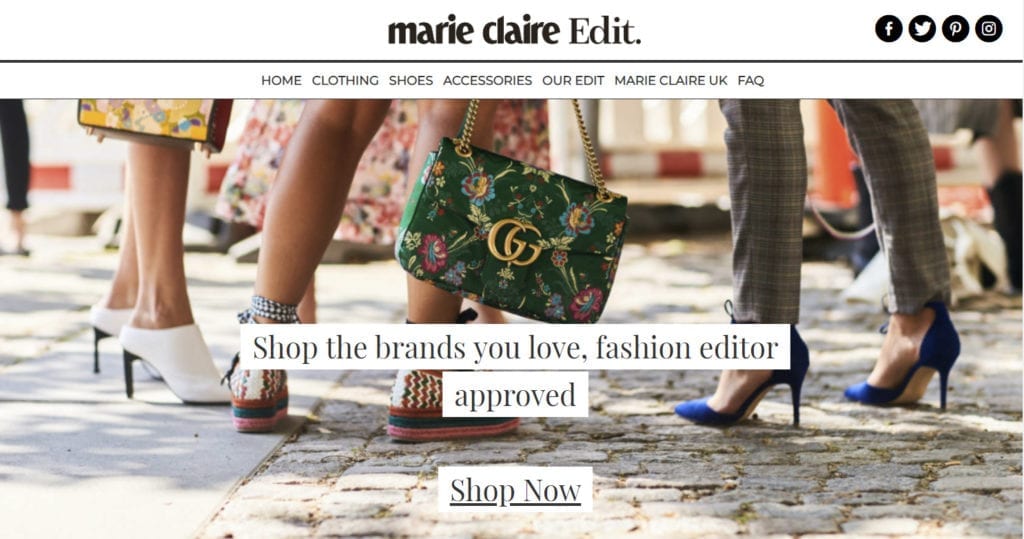|
Getting your Trinity Audio player ready...
|
Marie Claire UK, the premium fashion title published by TI Media, has ventured further into retail with a new ecommerce aggregator platform for the fashion industry: Marie Claire Edit.
The new platform offers fashion brands native and social ad formats which allow users to shop and browse brands directly from the Marie Claire website which, in October 2018, attracted 1.84M unique visitors.
With brand partners that include Farfetch, Selfridges, ASOS, Topshop, NET-A-PORTER and MATCHESFASHION.COM, the venture offers an endorsement angle for brands, with a Marie Claire Edit approved badge for items selected by the title’s fashion editors.

The initiative comes two years after Marie Claire UK and Ocado successfully launched the premium beauty store Fabled by Marie Claire and Fabled.com, another example of TI Media counterbalancing a sharp decline in print sales which this summer saw Marie Claire’s circulation drop precipitously 21 percent year-on-year to 123,854.
Commenting on the launch, Marie Claire UK’s managing director, Justine Southall, said, “Marie Claire has tried to anticipate the way that women want to engage with us and to shop, and with Fabled by Marie Claire and now with the launch of Marie Claire Edit, we have taken that into new territory. Now the power and influence of Marie Claire’s fashion editors
2018 has seen more publishers attempt to leverage the power of their brands and create new revenue streams through ecommerce. Earlier this summer, Hearst Magazines acquired a minority stake in Gear Patrol (a men’s brand focused on enthusiast products) to goose its ecommerce strategy, while Future acquired NewBay Media, (Bass Player, Guitar World, and MusicWeek) shortly after launching the Louder platform, its music hub
But perhaps the standout example of a publisher nailing

Pete Wootton, managing director of digital for Dennis told Digiday, “We want to massively scale the business because we believe it will generate revenue in the hundreds of millions [of pounds] in the next few years. Next year, I believe we’ll make £100 million [$138 million].”
Publishers be warned: Not all ‘pivots to ecommerce’ have been successful. For every standout performer like Future’s T3 – whose ecommerce revenue now exceeds its display revenue – there are other publishers whose ventures have hit the rocks.
Grazia magazine’s owner, The Mondadori Group, acquired ecommerce business London-Boutiques.com in May 2014, and turned it into Graziashop. Two years later, it lost its founding directors and currently the site displays the following holding page:

It’s no surprise, therefore, that the biggest publishing hires over the past twelve months have been – GDPR aside – ecommerce specialists. Condé Nast has hired consumer marketers from companies including Expedia, Barclaycard, and eBay, whilst Time Inc. has hired new marketers from companies including Amazon, Visa, Netflix
As Greg Giangrande, head of human resources at Time Inc told Digiday. “Years ago, the feeling was, you need to know our business to be able to get hired here. That model has shifted. We need to act like companies that have had it (
Photo by freestocks.org on Unsplash


